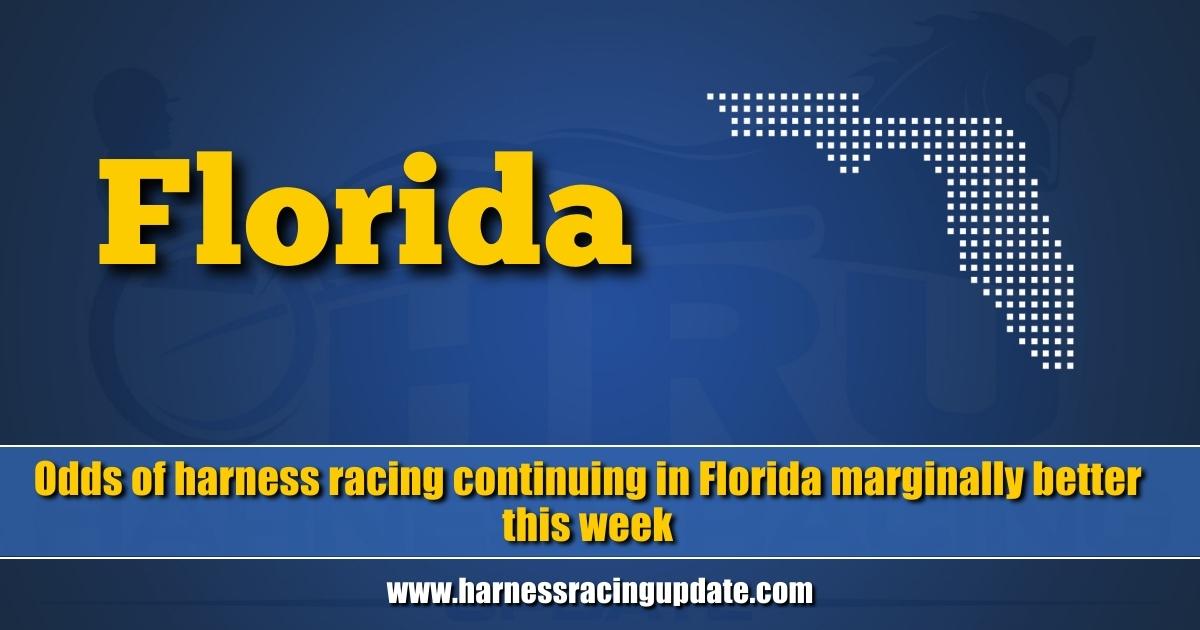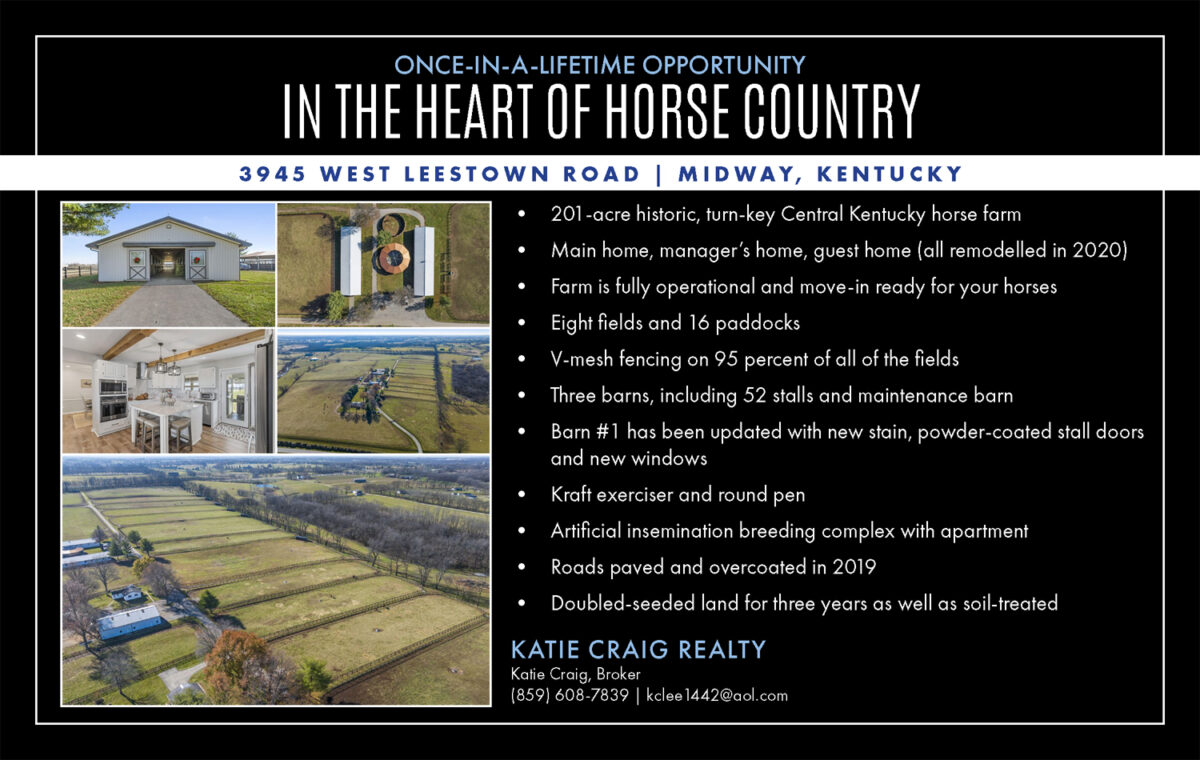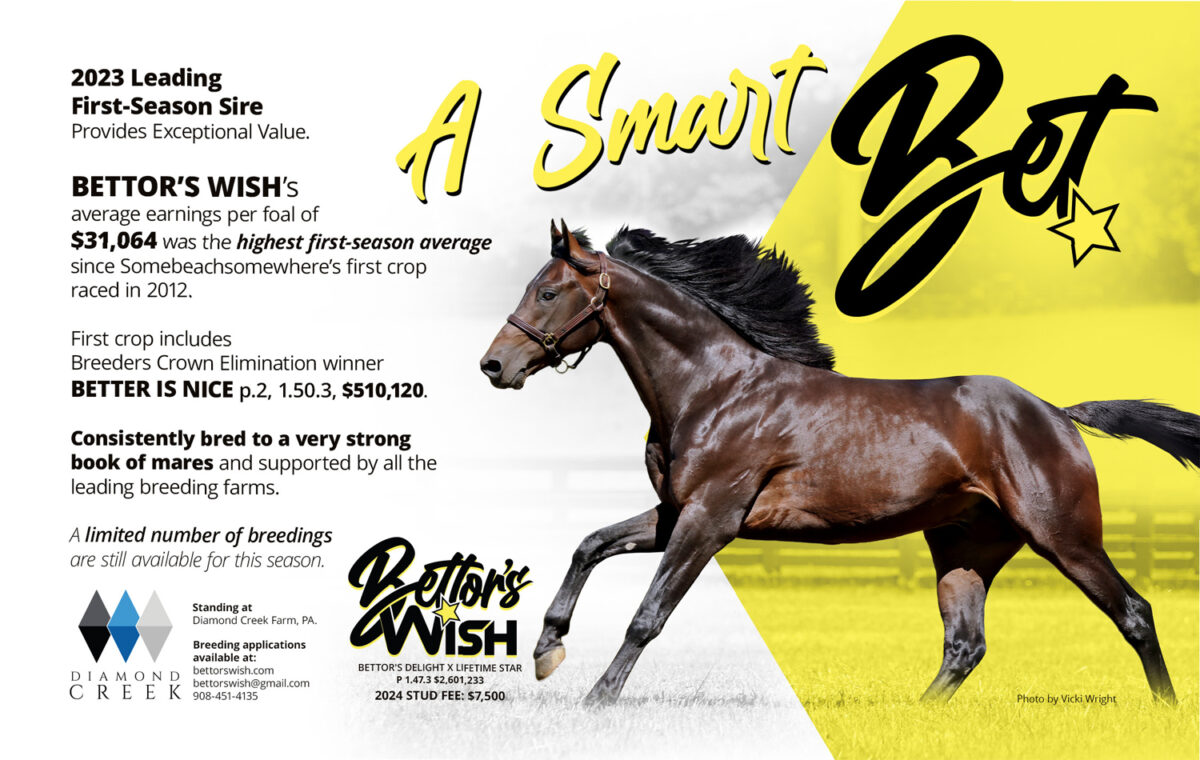

Odds of harness racing continuing in Florida marginally better this week
“I can tell you that based on the Indian compact being struck down by the federal judge, obviously things have changed; to what degree, I sincerely don’t know at this point,” Joe Pennacchio told HRU.
by Melissa Keith
The sulky wheels keep turning as Florida harness racing rolls towards an undefined future. The ambiguity has recently had little to do with the final season of live racing at Isle Casino Pompano Park and more to do with the fate of the Seminole Tribe’s Florida sports betting monopoly.
The Seminoles’ Hard Rock Sportsbook was originally approved to operate on a “hub and spoke” model that would allow it to offer legal sports betting online and at approved physical locations. Last week, a federal judge determined that the gaming agreement between the state and the Seminoles was fatally flawed, which raised the question: Would decoupling of harness racing be reversed as well? The sports betting compact had been tied to standardbred decoupling and the creation of a Florida Gaming Control Commission when it was initially approved.
How that happened:
May 19: The Florida Senate passed “Implementation of the 2021 Gaming Compact Between the Seminole Tribe of Florida and the State of Florida” (CS/SB 2-A) and Bill 8-A (2021A), a “companion bill” which allowed the state’s last harness racino operator to “elect not to conduct live racing or games.” Wording explicitly protected thoroughbreds from decoupling. Table games, slots and off-track wagering would remain legal at Pompano; conducting a live meet would no longer be a prerequisite. Governor Ron DeSantis approved the bill May 25.
Although it passed July 8, the new law would not find easy acceptance from gaming operators. In August, Southwest Parimutuels (owner of Miami’s Magic City Casino and the Bonita Springs Poker Room, located on Race Track Road in Bonita Springs, Southwest Florida) filed a lawsuit objecting to the compact that would have allowed the Seminoles to become the state’s exclusive provider of legal sports wagering starting Oct. 15.
Southwest Parimutuels argued that even if the Seminoles’ Hard Rock brand approved some casinos, jai alai frontons and racetracks to host sports betting, with a percentage of revenue going back to the tribe, these “permanent facilities” would become financially unsustainable. They had already been dealt a harsh blow when dog racing became illegal in Florida on New Year’s Day 2021. Magic City Casino was added to the Flagler Greyhound Race Track (founded in 1932) in 2009. Bonita Springs Poker Room opened in 2020 and is what survives of the Naples-Fort Myers Greyhound Track, which conducted meets for over six decades.
Nov. 1: The Hard Rock Sportsbook app quietly debuted.
Nov. 22: A federal appeals court judge ruled that the “hub and spoke” aspect of the Seminole compact violated the federal Indian Gaming Regulatory Act. US District Judge Dabney Friedrich pointed out that sports betting on “Indian lands” didn’t mean computer servers located on Indian lands; bettors actually had to be on the property. Like Southwest Parimutuels, Judge Friedrich considered the server argument “fictional”, stating in her decision that “[w]hen a federal statute authorizes an activity only at specific locations, parties may not evade that limitation by ‘deeming’ their activity to occur where it, as a factual matter, does not.”
The News Service of Florida’s Dara Kam reported that the compact also failed to fulfil a 2018 constitutional amendment (Amendment 2) which stipulates that Florida voters must approve expanded gaming. The Seminoles took the matter to the U.S. Circuit Court of Appeals for the District of Columbia last week.
Dec. 3: Their emergency motion for a stay during the appeal process was rejected. The next day, the Hard Rock Sportsbook app was shut down. Its website reads that the app is “now live in Iowa and New Jersey and coming to more states soon,” and that updates will follow “on our progress to bring safe and trusted sports betting back to Florida.”
Dec. 9: Florida Politics’ Renzo Downey noted that Governor DeSantis was still counting on a legal victory for the sports wagering deal: $500-million in anticipated revenue from the Seminole compact was included in his proposed budget for next fiscal year.
Such confidence doesn’t colour discussions about what will become of pari-mutuel harness racing after Pompano’s 2021/22 meet concludes April 17.
“I can tell you that based on the Indian compact being struck down by the federal judge, obviously things have changed; to what degree, I sincerely don’t know at this point,” Joe Pennacchio told HRU Friday (Dec. 10). The Florida Standardbred Breeders and Owners Association (FSBOA) director and past president confirmed that the Seminoles have no specific interest in decoupling.
“I was in the [Pompano] paddock a couple of weeks ago, on a Monday night, and the guys were asking me what do I think our chances are, and I said I think our chances are one per cent for just having standardbred racing in the state of Florida,” said Pennacchio. “Now I say, based on this change, it’s 25 per cent or maybe a little higher than that. It’s truly going to come down to a legal argument based on Florida law.”
He added that he expected the matter would eventually be decided in the Florida Supreme Court, independent of what happens with the Hard Rock Sportsbook.
After all, standardbred decoupling was never actually voted on in the May 19 Florida Senate special gaming meeting that approved the Seminole compact. Florida House District #97 Representative Dan Daley (D) had hoped to introduce an amendment that would let standardbreds share thoroughbreds’ protection from decoupling during that session, but as he then told HRU, “The Senate would not take that amendment. And I had the votes in the Senate. They would not bring up my amendment to protect harness racing for consideration.”
There are wider implications.
“I think that the story here to sell is to Ohio, Pennsylvania, New Jersey, New York, Indiana, Illinois, that if these casino guys get what they want down here, I’m sure that the other guys are smart enough to figure out how to play this game,” said Pennacchio. “The domino effect is there. If you have horsemen in those states I named who think they can’t be touched…They come in and go, ‘Ah, they aren’t bothering us.’ You believe that? We had a law in place here that said they have to race horses to have a casino. Guess what? They don’t have to do it anymore, and they never even changed the law.”
He added that despite an abundance of standardbred training centres in the Sunshine State, the racing itself gets a cold shoulder from many owners and trainers.
“I don’t know what the crossover is, but very few of them race down here during the winter anyway. Very few. The big stables, they come down and some of them are as much as three or four hours from Pompano. This is a big state to travel and they’re not going to truck down to race anything; they don’t even qualify down here anymore. For the vast majority of them, they just send [horses] up north… Florida racing doesn’t really mean that much to them at all.”
The FSBOA director explained that after Pompano discontinues racing, the only way the sport can continue is at a new or repurposed venue.
“You look at the state of Florida from the centre of, say, Orlando north, and there are multiple racetracks already in place on different pieces of property that could all be converted in a very short period of time into a functioning pari-mutuel track. That’s not the problem. The problem on that end is [finding] somebody that wants to do it and is willing to put up the money to do it.”
Representative Dan Daley also observed that it won’t be easy to overcome decoupling or find a place to race. “It’s going to take legal action or it’s going to take legislation,” he told HRU this week. “So I’m also looking at legislation that would permit the Florida Standardbred Breeders and Owners Association to have their permit, because right now, they do but it’s not a standardbred racing permit, it’s a stakes permit… As the law stands, there is no mechanism for someone to transfer a permit to the standardbreds–there’s no mechanism for them to race in Florida, period, and they can’t apply for a new permit because we foreclosed the opportunity to apply for new pari-mutuel racing permits in the [May 19] special session.”
His investment in the game got literal this fall, when Daley became a first-time standardbred owner. “There’s two of them, actually,” he noted proudly. “Dad and I went to Lexington, and I had a couple of bourbons and he convinced me to buy my first horse with him. It’s pretty neat, because it’s the first time he and I have owned a horse together.”
His father, trainer/driver Dan Daley, currently has trotting colts Hit Like Crazy and Jetts Metter at Olympia Palm Beach Training Centre (formerly South Florida Trotting Centre). Would the family like to race them in Florida someday?
“Look, they’re New York breds, so they’ll probably race primarily in New York,” said the member of the Florida House of Representatives. “But you know, I’d like the option, and right now that option has been foreclosed.”
Pennacchio said that whatever happens to standardbred decoupling at a legal or legislative level, the Pompano Beach racino’s days are numbered. “It’s a very, very valuable piece of real estate. Calder sold their property for some huge number approaching $2-plus-million an acre, and trust me, the Pompano property is worth way more than that. The Calder [Gulfstream Park West] property is in the middle of nowhere.”
On Nov. 22, it was announced that Churchill Downs Inc. had sold 115.7 acres at Gulfstream Park West to a real estate developer for $291 million, but kept the former thoroughbred track’s casino.
“I’ll tell you one thing about Pompano: For all the problems that we have, people still bet on this product,” he added, wistfully. “Last year, which was their 57th year, was the highest handle they ever had.”
That encouraging statistic must factor into rebuilding Florida harness racing: Whatever happens next will be precedent-setting, reinventing the wheel after years of frustrating setbacks.















